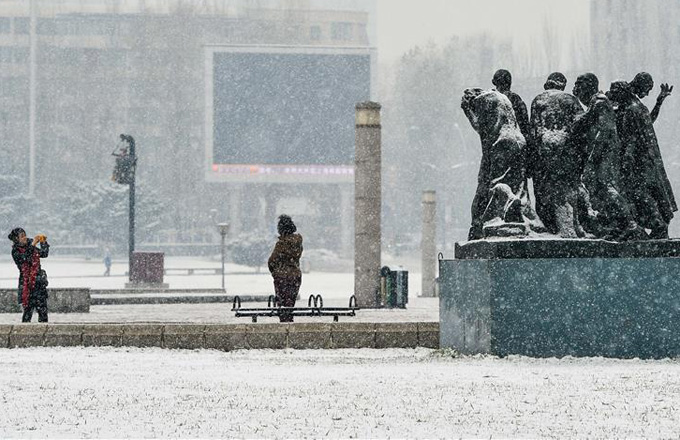1,600 vagrant Xinjiang children resume normal life
The survey found most returned children are reluctant to settle down in their hometowns because the villages lag too far behind the big cities they used to loiter.
Many of them also felt detached from their parents because they were too busy working to show any affection for them, according to the survey.
Erkin Taxmemet, deputy of the 11th regional People's Congress, said some children were even abandoned by their divorced parents, for neither parent was willing to bring them up.
He was the person who submitted the proposal asking for more attention for vagrant children at the end of last year, raising regional government's concern about the group.
He added that having been school dropouts for years, the children were reluctant to return to education as they felt it too difficult to catch up with their peers.
Elat Hasan, Secretary General of Xinjiang Uygur Autonomous Regional People's Government, said the authority has acknowledged these problems and is striving to prevent returned children from wandering the streets again.
Children who were healthy and did not have criminal records, were sent back to their hometowns for further education, he said.
Others who were sick, disabled, or abandoned, were sent to welfare institutions for medical treatment and counseling.
Those aged above 16 were provided with government-sponsored vocational training. Those from poorer families could apply for government aid.
Xinjiang has spent 88 million yuan (about 14.2 million U.S. dollars) on a training center and shelter for vagrant children.
The shelter will accommodate 500 people upon completion of its first phase of construction in October. It will be the largest and most full-featured of its kind in China.
The living subsidy for each child has gone up from eight to 15 yuan per day, higher than Beijing's standards, according to the center's director.
A number of welfare centers for children have also been established in the past two years in underdeveloped areas in southern Xinjiang, including Hotan, Aksu and Kashi, where child trafficking is rampant. They are part of affluent inland provinces and municipalities' efforts in supporting Xinjiang's development.
Twelve-year-old orphan Hajigul Kurban, who used to live in a house under construction, now lives in a welfare center in Wushi County of Aksu Prefecture. The child told Xinhua she enjoys meals and a warm bed.
"I was often starving and freezing before. But uncles and aunts here consider me family," she said.

















